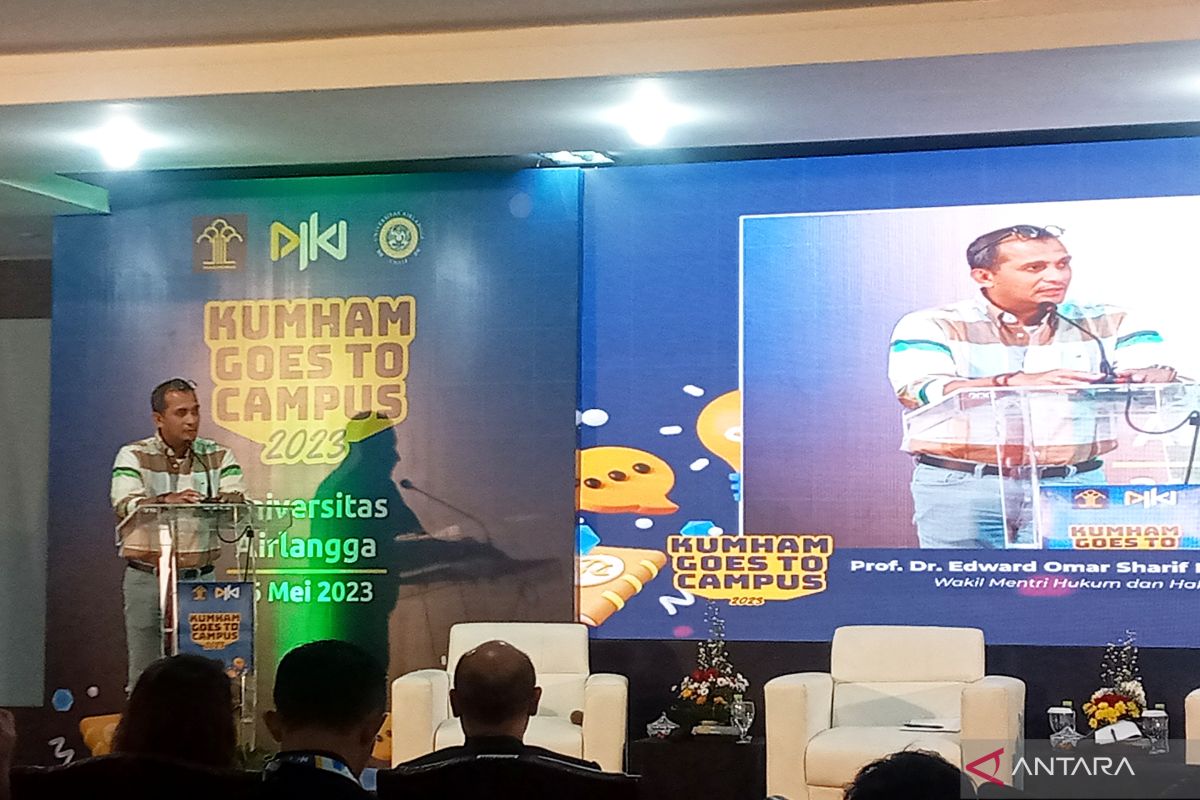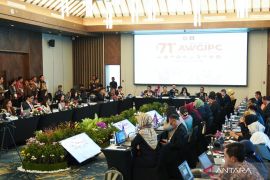"On Criminal Code, which was ratified as per Law number 1 of 2023, it is not something that just flat out fell from the sky, and we (the team that formulates it) did not work in the dark," Deputy Minister of Law and Human Rights Edward Omar Sharif Hiariej stated in Surabaya, East Java, on Friday.
He delivered the statement during a speech at Airlangga University.
Hiariej said that the Criminal Code was formulated for about 64 years, since 1958 to 2022.
"Hence, it takes a very long time, and I think the law, with the longest time of formulation ever is the Criminal Code," he remarked.
However, no country, recently freed from colonialism, can ever make their national criminal code instantaneously, he pointed out.
He cited the Netherlands as an example, which despite its rather homogenous populace, needed 70 years to form its own criminal code after breaking free from France's grip.
"Hence, if we (Indonesia) who are heterogenous, multi-ethnic, multi-religious, and multicultural, needed more than 60 years, then that is normal," he pointed out.
He explained that a country, with heterogenous people, faces greater difficulties in coming up with the Criminal Code since there are several issues among people with socio-cultural differences.
"Every issue can become a controversy, and perfection is impossible," he remarked.
He also outlined five objectives of the Criminal Code, including decolonialization, so as to remove the influences of colonialism on its predecessor.
Hiariej noted that democratization was the second goal. The new Criminal Code does not conflict with democracy, and it also allows for free speech, he pointed out.
The third is consolidation, as it thoroughly reforms the old one as well as some laws outside the Criminal Code by recodifying it, Hiariej stated.
The fourth is harmonization, as several sectoral laws are synchronized with the new criminal code, he remarked.
"The fifth mission of the Criminal Code is modernization," the deputy minister noted.
Hiariej said that modernization aims to shift the paradigm of the law while affirming that law is no longer a tool for revenge, but rather, something to pursue justice.
Related news: Ministry to discuss Narcotics Law revision with DPR
Related news: Restorative justice in new Criminal Code addresses prison overcapacity
Translator: Tri Meilani A, Mecca Yumna
Editor: Rahmad Nasution
Copyright © ANTARA 2023












